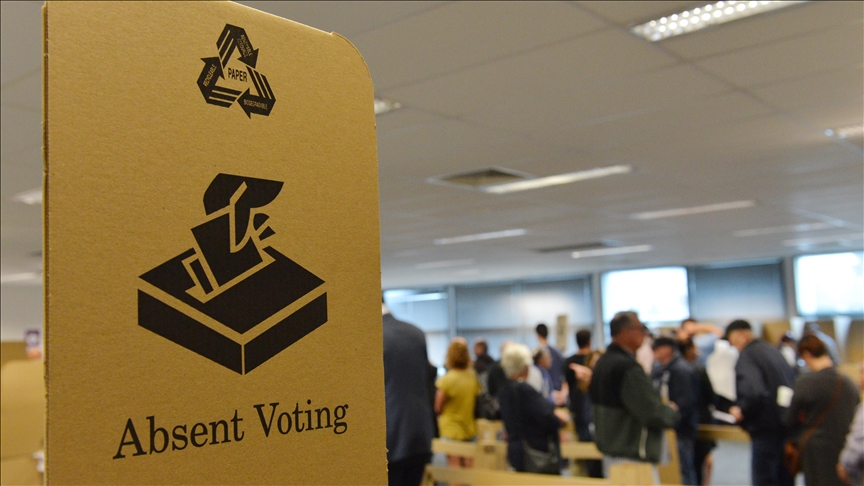In recent weeks, the spotlight has been on the critical issues affecting voters globally, particularly in Australia. The upcoming federal election on Saturday promises to be a significant event as more than 18 million Australians prepare to cast their votes amidst pressing economic challenges. The cost of living, inflation, and housing affordability are dominant themes that are influencing public sentiment and voter behavior. This election will not only determine the future governance of Australia but will also shape its stance in an increasingly complex international landscape, particularly in the wake of Donald Trump’s presidency.
Economic Discontent as a Central Theme
The Australian electorate is seeking solutions to rising costs that have been exacerbated by ongoing inflation. Economic concerns are intertwined with daily life, as many Australians face challenges in affording housing. Political analysts emphasize that neither of the major parties—Prime Minister Anthony Albanese’s center-left Labor Party or Peter Dutton’s center-right Liberal Party—has provided satisfactory solutions to these pressing issues. Nathan Fioritti, a political analyst from Monash University, states that while both parties are attempting to position themselves as financially responsible, their efforts often fall short of offering real, substantive relief for Australians grappling with the cost of living crisis.
The disillusionment with established political parties has fueled interest in smaller, alternative options. For instance, the Greens are expected to capture significant support, thanks to their diverging proposals on housing affordability. This election may mirror trends observed in 2022, where traditional party support waned due to widespread frustration with their inability to address pressing economic concerns effectively.
The impact of the Israel-Palestine conflict on voter decisions is another noteworthy consideration. As Australia assesses its international role, segments of the electorate influenced by the Palestinian solidarity movement may lean toward alternative parties advocating for a firmer stance on these issues. This shift may play a vital role in determining the balance of power in the next government.
The Shadow of Trump
While domestic issues like the cost of living take center stage, the “Trump effect” looms over the Australian political landscape. However, analysts suggest that this influence is likely less pronounced than it has been in other countries, such as Canada. Fioritti notes that attempts by the Australian Coalition to emulate Trump’s confrontational style have backfired, as Australians historically prefer a different political approach. Nevertheless, voters are still considering which party would best navigate the complexities arising from Trump’s presidency, albeit with variations in their weight.
The implications of Trump’s policies, particularly in terms of security alliances, have added another layer of complexity to Australia’s foreign policy dynamics. Charles Miller, a political scientist, posits that regardless of the election outcome, Australia’s government will likely continue to maintain strong security ties with the United States while also balancing its relationship with China.
Navigating Foreign Relationships amid Domestic Strife
Amid rising costs and a troubled domestic economy, the Australian electorate remains aware of the broader implications of foreign policy, particularly concerning relationships with the US and China. The potential for increased tariffs on Australian goods could lead to a pivot towards stronger trade relations with China if the current administration fails to remove such tariffs.
China’s recent engagements with regional allies like Japan and South Korea indicate that it might be attempting to reshape trading relationships in its favor. If these strategies bear fruit, they could alter Australia’s economic dependency and influence public attitudes toward China. Despite this, Miller asserts that Australia’s historical alignment with the US will likely endure, albeit with a more pragmatic approach toward engagement with China under a new government.
Final Thoughts
As Australians prepare to cast their votes this weekend, the focus remains squarely on the costs of living and the government’s responses to economic challenges. Political analysts predict a potential repeat of the 2022 electorate behavior where traditional party support dwindled, paving the way for smaller parties and independents to gain ground.
The intersection of domestic priorities and the looming influence of global political trends underscore the complexity of this election. The implications of voter behavior extend beyond immediate economic concerns, encompassing broader issues such as foreign policy and international solidarity movements. As Australia navigates this critical electoral moment, the choices made by voters may significantly impact the country’s future direction, both politically and economically.
In conclusion, the Australian federal election presents a crucial opportunity for voters to voice their concerns about the rising cost of living and to forge a path that leads to sustainable solutions. The interplay between economic pressures at home and the dynamics of global politics will undoubtedly shape the outcome, highlighting the need for a government that not only addresses immediate economic challenges but does so with a thoughtful eye towards fostering equitable relationships internationally. Voter engagement in these issues signifies a commitment to accountability and progress in both domestic and foreign policy arenas.
Source link


:max_bytes(150000):strip_icc():focal(793x379:795x381)/madonna-father-060325-7d7289ddf0844ff9aadeb51ec665121e.jpg?w=150&resize=150,150&ssl=1)







